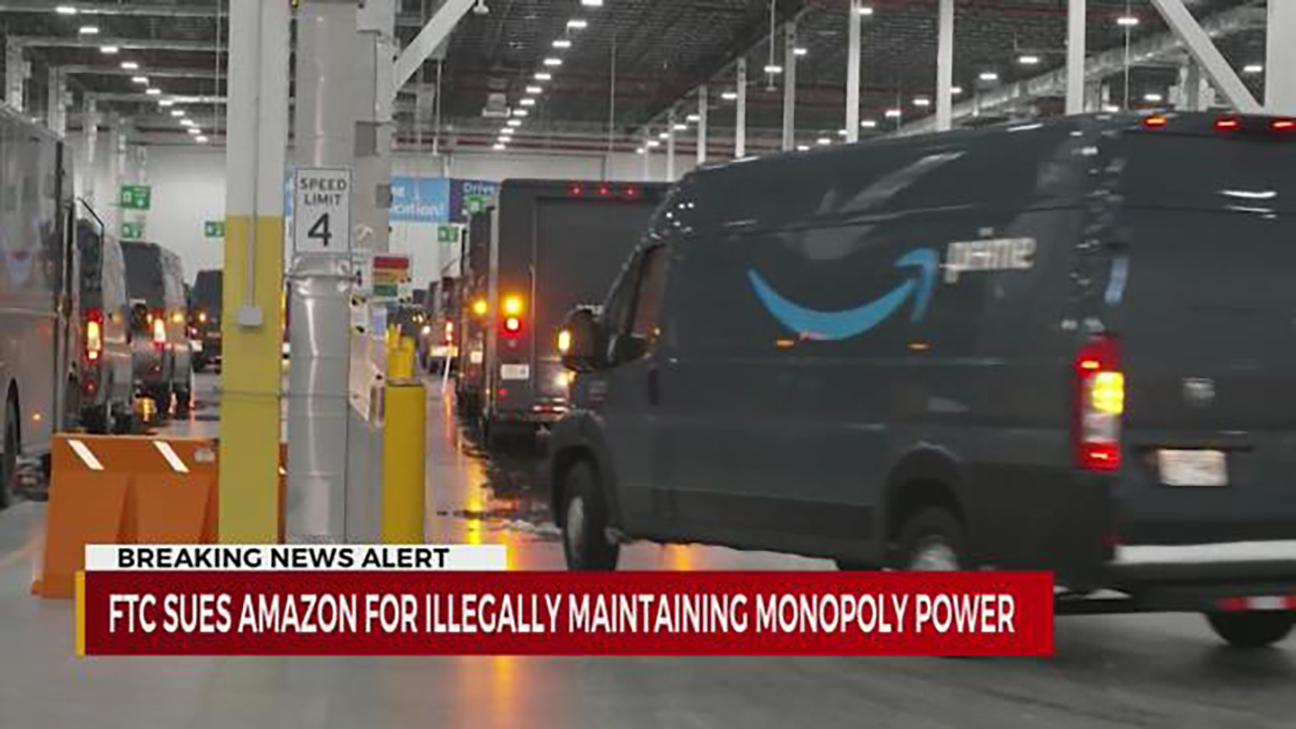In a groundbreaking legal showdown, the Federal Trade Commission (FTC) and 17 state attorneys general have filed a lawsuit against Amazon.com, Inc., accusing the e-commerce behemoth of wielding its market dominance in ways that stifle competition and harm both consumers and sellers. This unprecedented legal action seeks to dismantle Amazon’s alleged monopoly and restore the principles of free and fair competition.
The complaint contends that Amazon is not under scrutiny merely due to its colossal size but rather because of its purported anticompetitive practices, which have allowed it to maintain an iron grip on the e-commerce landscape. According to the FTC and its state partners, Amazon employs a web of exclusionary tactics that thwart competitors from growing and deter new entrants from challenging its supremacy.
One of the key allegations is that Amazon manipulates prices and product quality, effectively deterring rivals and sellers from offering lower prices or better quality, ultimately harming consumers. The complaint further argues that Amazon’s strategies extend to stifling innovation and obstructing fair competition.
The gravity of these claims cannot be overstated, as Amazon’s reach extends to hundreds of billions of dollars in annual retail sales, encompassing a vast array of products from businesses of all sizes and catering to millions of shoppers.
FTC Chair Lina M. Khan asserted, “Our complaint lays out how Amazon has used a set of punitive and coercive tactics to unlawfully maintain its monopolies. Today’s lawsuit seeks to hold Amazon to account for these monopolistic practices and restore the lost promise of free and fair competition.”
John Newman, Deputy Director of the FTC’s Bureau of Competition, emphasized the significance of this case: “Seldom in the history of U.S. antitrust law has one case had the potential to do so much good for so many people.”

The Core Allegations
The FTC and state attorneys general pinpoint Amazon’s anticompetitive monopoly behavior in two key markets: the online superstore market serving consumers and the online marketplace services market catering to sellers. The allegations include:
- Anti-discounting Measures: Amazon allegedly punishes sellers who offer lower-priced goods elsewhere by burying them in search results, making them virtually invisible to consumers.
- Prime Eligibility Coercion: Amazon allegedly forces sellers to use its costly fulfillment service in exchange for “Prime” eligibility, making it prohibitively expensive for sellers to list their products on other platforms, thereby limiting competition.
- Search Result Manipulation: Amazon purportedly replaces relevant organic search results with paid advertisements, compromising the customer experience, and frustrating both shoppers and sellers.
- Product Bias: The complaint alleges that Amazon biases its search results in favor of its own products, even when superior alternatives are available.
- Costly Fees: Amazon charges substantial fees to sellers, including monthly fees for each item sold and advertising fees. These fees, when combined, can consume nearly 50% of a seller’s total revenue.
The FTC and its state partners are seeking a permanent injunction in federal court to halt Amazon’s alleged unlawful practices and restore competition in the marketplace. If successful in the decimation of Amazon’s monopoly power, this case could have far-reaching implications for the future of e-commerce and antitrust regulation.
Connecticut, Delaware, Maine, Maryland, Massachusetts, Michigan, Minnesota, New Jersey, New Hampshire, New Mexico, Nevada, New York, Oklahoma, Oregon, Pennsylvania, Rhode Island, and Wisconsin have all joined the FTC in this legal battle. The Commission’s unanimous vote to pursue a permanent injunction underscores the gravity of the situation and the urgency to address Amazon’s alleged monopolistic control.
As the case unfolds, the outcome could potentially reshape the landscape of online commerce, redefining the boundaries of competition and market power.






